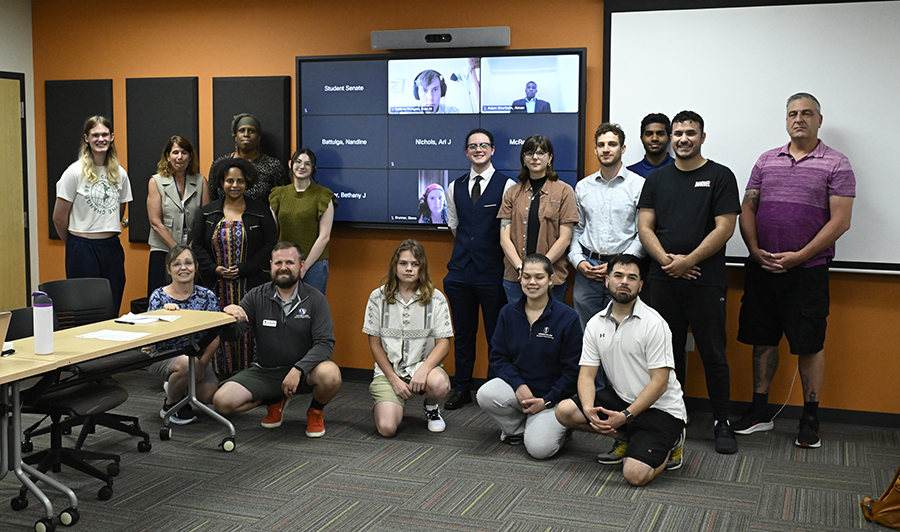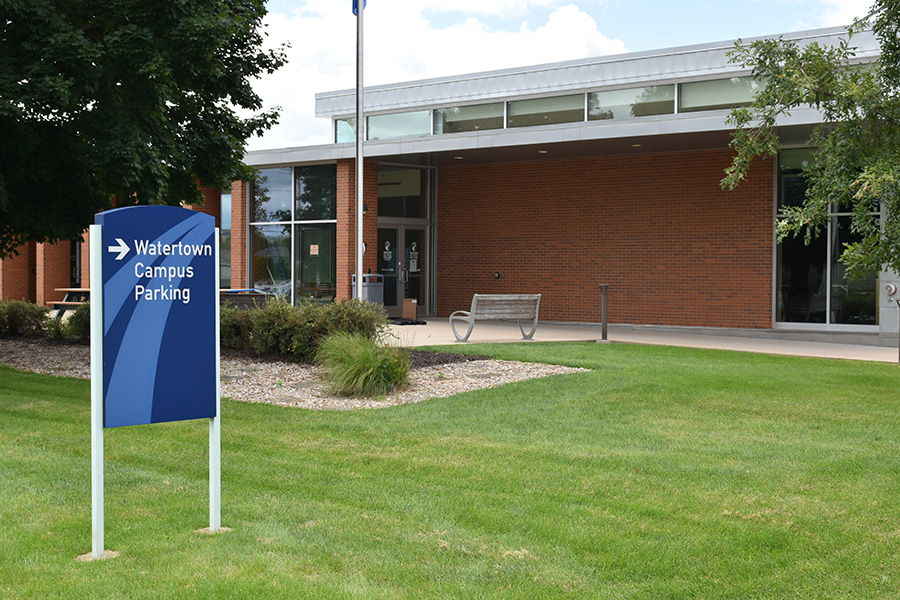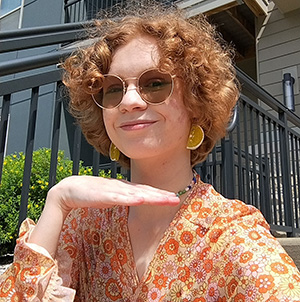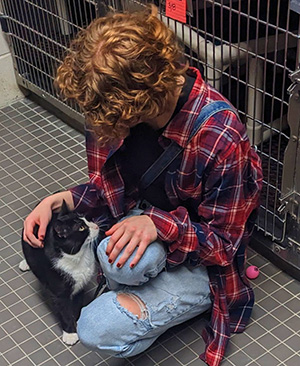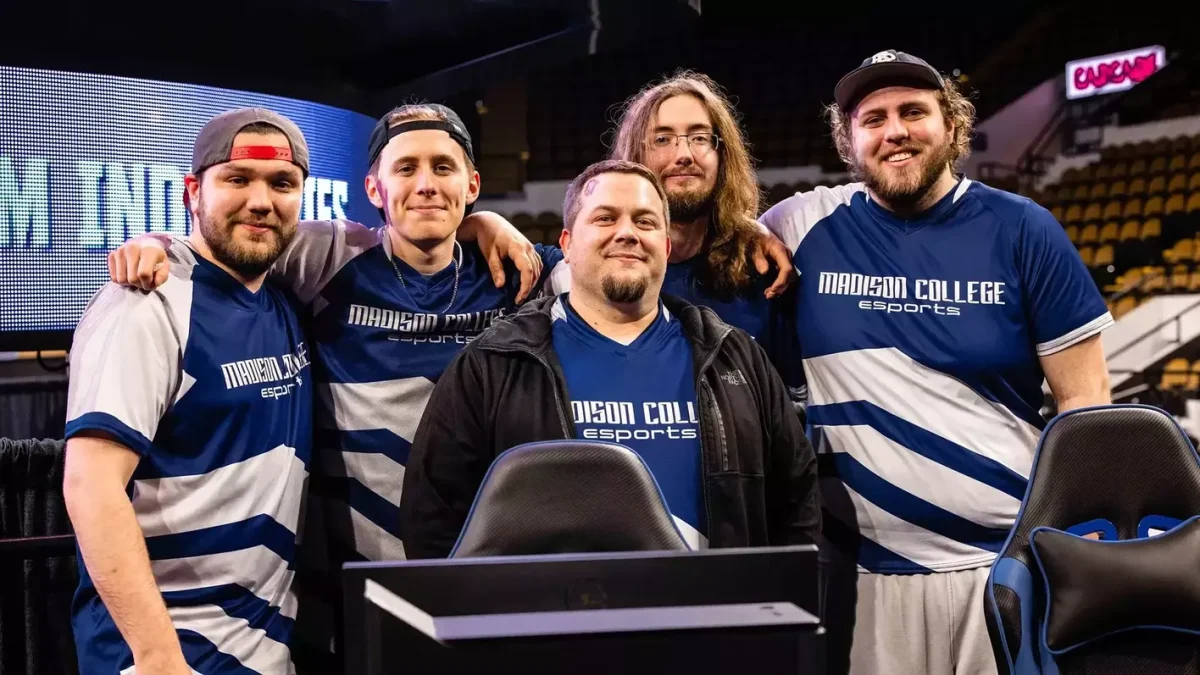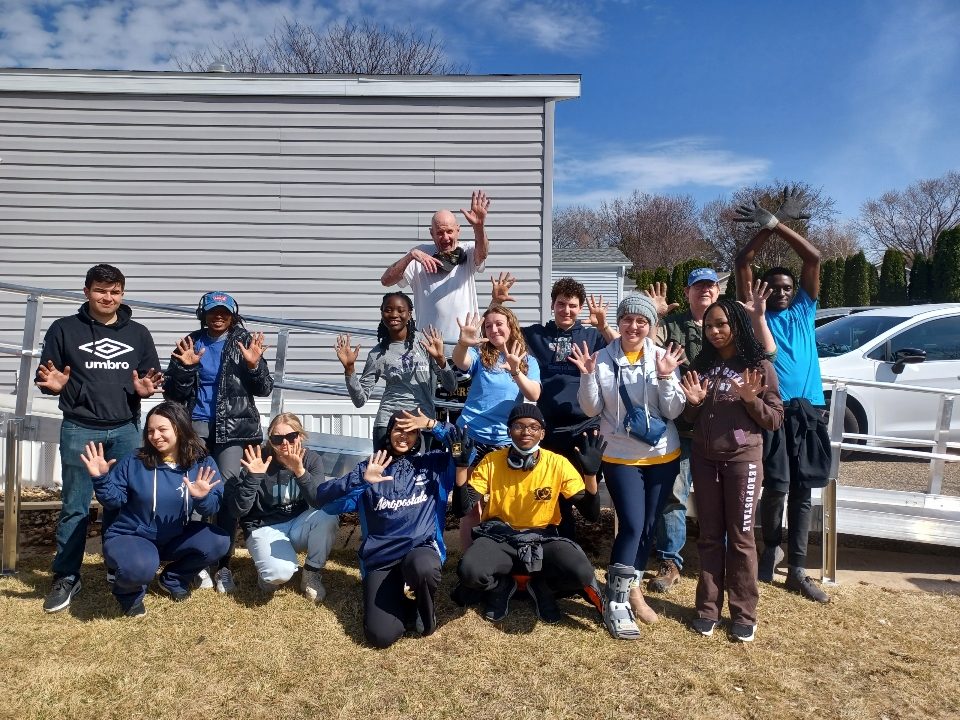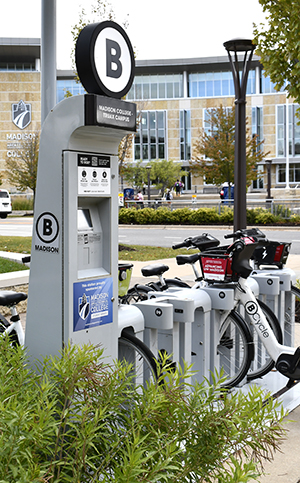Early in her career, as a teacher and college administrator, Madison College President Dr. Jennifer Berne noticed a concerning trend. Some students were quietly dropping out without much attention from faculty. While the numbers were small, she was surprised by the indifference towards the reasons behind their departure.
“We would think, ‘Oh well, maybe they found another job,’ or ‘Perhaps they had childcare issues,’ or ‘Maybe this was just too difficult for them.’ We didn’t explore these possibilities,” she said.
It was this mix of indifference and acceptance that motivated Berne to make a change.
Berne asked herself and other faculty members to consider what they could do to “Help every student stay,” she explained. “What are some small things we can do so that students leave our classrooms on a Tuesday and they come back on Thursday?”
She describes, “Helping students stay” as a “stickiness” in a student’s journey, creating stronger chances for graduation, keeping students in the classroom when other factors may make it convenient to quit. Colleges need to develop a sense of belonging, so students feel connected and aware of available academic resources.
After a lengthy nationwide search, Madison College District Board of Trustees named Berne its ninth president last spring. Most recently serving as the provost at Oakland Community College, Berne officially began her role on July 1.
In addition to her position as provost, she has held roles as a faculty member, researcher and educational leader, spanning three decades of experience in higher education.
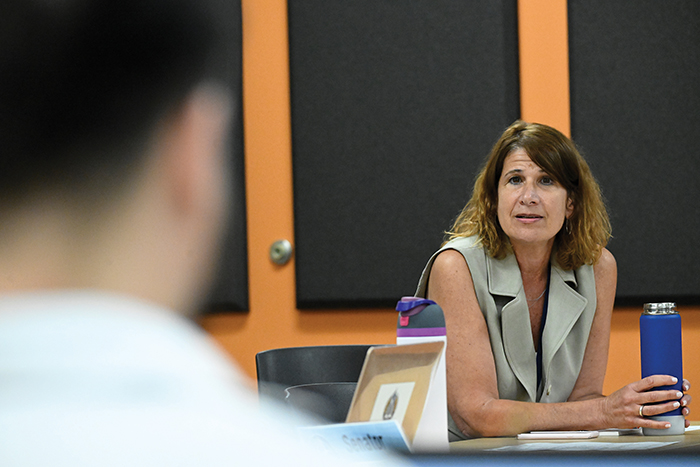
Berne is a lifelong marathon runner who enjoys challenges and creating a game plan. Just as a marathoner remains focused on the finish line, Berne is dedicated to helping Madison College students achieve their goal of graduating and crossing the finish line.
If you haven’t had the chance to meet Madison College’s leader yet, you will likely do so soon. Whether she is attending a student senate meeting, chatting with new students at a WolfPack Welcome event or engaging in small group discussions, Berne is actively involved across the Truax campus and its regional sites.
You’ll rarely find Berne behind a desk. She is committed to being out and about and to being present, visiting people in their environments. Dedicated to receiving feedback from faculty and staff, Berne values listening more than speaking.
Dr. Mark Thomas Jr., Executive Vice President, Policy and Strategy, has collaborated and worked with Berne, supporting her in initiatives and strategic goals. He points out Berne’s ability to hear, understand and capture what people are saying.
“She’s an active listener. An intense listener. She asks very good, meaningful and curious questions. She’s an active learner. She identifies the things she knows well and admits and wants to learn about the things she doesn’t,” Thomas Jr. said.
He also noted that Berne has a deep understanding of the classroom and familiarity with academics, stemming from her career as a researcher and teacher.
“She’s able to put the two things together — in her research practice and teaching experience in ways that are applied,” Thomas Jr. said, adding that’s a huge value to the college. “She understands the theory. She’s done the research. She’s had the experience, and she can tie it all together and make it actually apply.”
Berne enjoyed teaching at both two-year and four-year institutions but felt a stronger connection to the two-year path.
While she helped graduate students at a four-year college, she found greater purpose in guiding two-year students at community colleges, helping them find a career path. The excitement students undergo is moments that resonate with her.
“’This is the career path that I want to take, this is what I want to explore, this is how I envision my life.’ I found that very exciting,” she said.
She’s inspired by the two-year schools’ special relationship to the community, as its graduates are more likely to stay in the community.
“I love the idea that we are educating dental hygienists to go across the street and become dental hygienists, then take care of my teeth. That sort of reciprocity — an intimacy of the two-year college — is special,” she said
As students enroll in their classes, check out their textbooks and meet with advisors, Berne said that the success of incoming and established students is her priority.
“Their success is our success — everybody, your professor, your advisor, the person who gives you your coffee in the morning, the person who helps you at the bookstore — all of those people would not be here if it weren’t for you. It is our absolute mission and the reason that we go to work in the morning — to help you be as successful as you can be,” Berne said.
Berne advises students facing major roadblocks to identify the barrier, acknowledging that colleges can’t fix everything but can help problem-solve issues like transportation, food insecurity, mental health or childcare.
She encourages students to stay committed to their educational goals, even if the school can’t meet every need, it can provide support in other ways.
This capacity and commitment to the students’ needs reflect her outlook on the ongoing relationship between higher education and its students.
“One thing I like about higher education is that there’s always so much to learn from the students. As stable as the faculty, staff and administrators are, the students are always changing, and so it’s up to us to change to accommodate them,” she said.
And to help them cross the finish line.
